
Saxophonist Pierre-Antoine Badaroux and double bassist Sebastien Beliah formed Ensemble Hodos in 2008 to perform the music of composers who wrote scores that include freedom and/or improvisation for the players, here performing the music of Philip Corner.
In Stock
Quantity in Basket: None
Log In to use our Wish List
Shipping Weight: 5.00 units
Sample The Album:
Pierre-Antoine Badaroux-alto saxophone
Felicie Bazelaire-cello
Sebastien Beliah-doublebass
Fidel Fourneyron-trombone
Brice Pichard-trumpet
Elodie Gaudet-viola
Joris Ruhl-clarinets
Philip Corner-composer
Click an artist name above to see in-stock items for that artist.
Label: Umlaut Records
Catalog ID: umfr-cd16
Squidco Product Code: 21957
Format: CD
Condition: New
Released: 2016
Country: Sweden / France / Germany
Packaging: Digipack w/booklet
Recorded in Paris, France on May 24th and 25th, 2014, by Lucie Laricq.
"Created in 2008 by Pierre-Antoine Badaroux and Sebastien Beliah, Ensemble Hodos plays the music of composers who give each musician an important share of responsibility and freedom. Open scores, graphic scores, indeterminate pieces, or pieces using chance or improvisation, are the core of the ensemble's repertoire. Their approach has three axes: collective work on the appropriation of pieces, close collaborations with composers, and meetings of musicians from various musical backgrounds"-Umlaut
Artist Biographies
• Show Bio for Pierre-Antoine Badaroux "Pierre-Antoine Badaroux is a Paris-based alto saxophone player, composer and producer. He is working as a freelance composer since 2006, focusing on relations between sound, notation and the role of the musician in an ensemble. In 2008 he became an active member of record label and collective Umlaut Records, producing his own albums from the deconstructed Bebop of Peeping Tom to the original Composition No. 6, to a historical project on arrangers of Swing music with Umlaut Big Band that he leads, to the improvised music of r.mutt." ^ Hide Bio for Pierre-Antoine Badaroux • Show Bio for Felicie Bazelaire "Felicie Bazelaire is a cello and double bass player based in Paris. She shares her time in different ways : between concerts and performances, studying pedagogy through a Masters degree at the Conservatoire National Supérieur de Paris, and teaching at the Orsay and Auxerre's conservatory. She is interested in classical music (chamber music) and contemporary music with her solo projects (improvisation, compositions, performances/actions...), the Hodos ensemble and the ONCEIM (a french improvised large orchestra led by Frederic Blondy). She is curious about the link between musicians, composers, improvisers and the actual music." ^ Hide Bio for Felicie Bazelaire • Show Bio for Sebastien Beliah "Sébastien Beliah is a Paris-based double bass player and composer. His work is mainly focused on improvisation and oral composition (R.mutt), relationship between composed music and improvisation (Ensemble Hodos), and jazz (Umlaut big band, The Coquettes, Un poco loco). As a double bass player, Sébastien Beliah has performed solo pieces from Hans-Joachim Hespos, James Tenney or Kenneth Gaburo among others. He is also doing improvised solo performance. As a composer, his pieces has been performed by musicians like Félicie Bazelaire, Pierre Borel, Hannes Lingens or the large ensemble ONCEIM. Sébastien Beliah is also deeply involved in the field of education, and teach double bass, jazz and improvisation at the Conservatoire de Reims." ^ Hide Bio for Sebastien Beliah • Show Bio for Fidel Fourneyron "Fidel Fourneyron - Trombone Born in southwestern France, Fidel Fourneyron moved to Paris in 2006 to complete his training in the class of jazz and improvised music at the Conservatoire. There, he met people and collectives that proved decisive for his aesthetic choices and future collaborations - including the COAX and UMLAUT collectives, les Vibrants Défricheurs and le Tricollectif, all of whom he still works with regularly. Drawn to improvisation (as part of the National Orchestra for Creation, Experimentation and Musical Improvisation) as much as to contemporary music (he worked with the Ensemble Hodos), Fidel is also fond of great swing orchestras and is a soloist in the Umlaut Big Band, which specializes in 1920-30s dance music. Spotted by the biggest names in contemporary jazz - among whom Marc Ducret who asked him to be part of his Real Thing #3 sextet - Fidel joined Olivier Benoit's Orchestre National de Jazz in 2014. Together with Roy Nathanson (Lounge Lizards), he was a guest musician for French quintet Papanosh's thunderous tribute to Charles Mingus, called "Oh Yeah Ho!" His recognizable touch can also be found in Radiation 10, Jukebox, Eve Risser's White Desert Orchestra, Marc Ducret's Tower Bridge and Tricollectif's Tribute to Lucienne Boyer. Fidel is often invited to perform as a soloist (European Youth Jazz Orchestra, MGH Orkestar) and asked for masterclasses (Conservatories of Poitiers, Tarbes, Blois, Angoulême, or for Dijon's Tribu Festival, etc.). Since September 2014, he has been conducting the Fanfare du Carreau du Temple - an amateur orchestra composed of some 40 musicians and for which he wrote an original repertoire. "Un Poco Loco," the trio he is part of, revisits 1950s standards with both elegance and humor. The band released their eponymous debut album in November 2014, on the Umlaut Records label; it was included in the program for Jazz Migration's 2015-2016 tour. Fidel also performs as a solo musician. His work is recorded on High Fidelity, a record coming out in the fall of 2015." ^ Hide Bio for Fidel Fourneyron • Show Bio for Joris Ruhl "After having studied classical music with Jacques Di Donato, Joris Rühl oriented himself towards contemporary music, written, improvised and jazz, with a predilection for projects blurring the borders between these different labels. He plays with contemporary music ensembles like L'Instant Donné or Hiatus, with jazz ensembles like TØRN, Hübsch 8, Simon Rummel Ensemble and with the experimental music ensembles ONCEIM and Spat' Sonore. He also improvises with, among many others, Michel Doneda, Thierry Madiot, Isabelle Duthoît, Eve Risser, Antez. His discography includes discs released under the labels Neos Jazz, Satelita, OBS and Umlaut Records. Beside this activity of musician, he also works on films and experimental videos." ^ Hide Bio for Joris Ruhl • Show Bio for Philip Corner "Philip Lionel Corner (born April 10, 1933; name sometimes given as Phil Corner) is an American composer, trombonist, alphornist, vocalist, pianist, music theorist, music educator, and visual artist. After The High School of Music & Art in New York City, Philip Corner received his BA (1955) at CCNY, where his most important teacher was Fritz Jahoda; and an MA (1959) from Columbia University where his composition teachers were Otto Luening and Henry Cowell, The two years in between (1955-57) were spent in Paris at the Conservatoire Nat'l de Musique, following the class "Philosophie Musicale" of Olivier Messiaen. Equally important was his friendship with the Canadian painter Paul-Emile Borduas, who introduced him to "la grande aventure nord-américaine", to which he returned and became part of the group around John Cage. At the same time he resumed his studies of the piano with Dorothy Taubman, which was to have a significant role in his compositional as well as performing life. He taught Modern Music at the New School for Social Research from 1967-1970, inheriting the class founded by John Cage at double remove after Richard Maxfield, with whom he was teaching assistant, and Malcolm Goldstein. His teaching career started at a New York City high school and continued at the New Lincoln School where he helped develop the music department and introduced innovative courses (1966-1972). During this period he was married to the astrologer and trance medium Julie Winter who was also a minister in the Church of Religious Science, with which he too was associated, composing music to be sung at meditation sessions. From 1972 to 1992 he continued as professor at the newly established Livingston College, a part of Rutgers, the State University of New Jersey, soon to be absorbed into the Mason Gross School of the Arts. He then took early retirement and moved to Reggio Emilia, Italy where he had previous contact through the Pari e Dispari "Arte Club Internazionale". An early friend, the dancer and choreographer Phoebe Neville, joined him there and became his wife and performance partner. He was a founding participant of Fluxus since 1961, was a resident composer and musician with the Judson Dance Theatre from 1962 to 1964 and later with the Experimental Intermedia Foundation upon the invitation of Elaine Summers, for whose dance company he served as musician. He co-founded with Malcolm Goldstein and James Tenney the Tone Roads Chamber Ensemble in 1963 (active until 1970), with Julie Winter Sounds Out of Silent Spaces in 1972 (active until 1979) and with Barbara Benary and Daniel Goode, Gamelan Son of Lion in 1976 (still active). In addition to his work as a composer and musician, he has created numerous assemblages, calligraphy, collages, drawings, and paintings, many of which have been exhibited internationally. He has also written much poetry, which like some of his music, has occasionally appeared under his Korean pseudonym Gwan Pok, meaning "Contemplating Waterfall". Editions in silk-screen have been brought out by the Archivio F. Conz, Verona, and Pari e Dispari Agency in Reggio Emilia, among others. Works are regularly exhibited in galleries, mostly in Europe, and are in notable museum collections. His principal gallery is UnimediaModern in Genova, whose director Caterina Gualco maintains a large collection. Other important collectors are Hermann Braun in Germany (deceased 2009) and Luigi Bonotto in Bassano who maintains an extensive documentation. During "Mississippi Freedom Summer 1964" and for some of the following year, Corner was a civil rights volunteer and Freedom School teacher in Meridian, Miss. "Mark Levy Collection. Queens College/CUNY Rosenthal Library Civil Rights Archive." In 1968, Corner signed the "Writers and Editors War Tax Protest" pledge, vowing to refuse tax payments in protest against the Vietnam War." ^ Hide Bio for Philip Corner
11/20/2024
Have a better biography or biography source? Please Contact Us so that we can update this biography.
11/20/2024
Have a better biography or biography source? Please Contact Us so that we can update this biography.
11/20/2024
Have a better biography or biography source? Please Contact Us so that we can update this biography.
11/20/2024
Have a better biography or biography source? Please Contact Us so that we can update this biography.
11/20/2024
Have a better biography or biography source? Please Contact Us so that we can update this biography.
11/20/2024
Have a better biography or biography source? Please Contact Us so that we can update this biography.
Track Listing:
1. Two-Part monologes, no. 2 (1957) 3:19
2. Pieces For String Instruments, no. 7 (1958) 22:45
3. Two-Part Monologues, no. 3 (1957) 5:19
4. 148 Equal Measures (late 50s) 7:35
Compositional Forms
Improvised Music
Octet Recordings
Large Ensembles
European Improvisation and Experimental Forms
New in Compositional Music
Search for other titles on the label:
Umlaut Records.


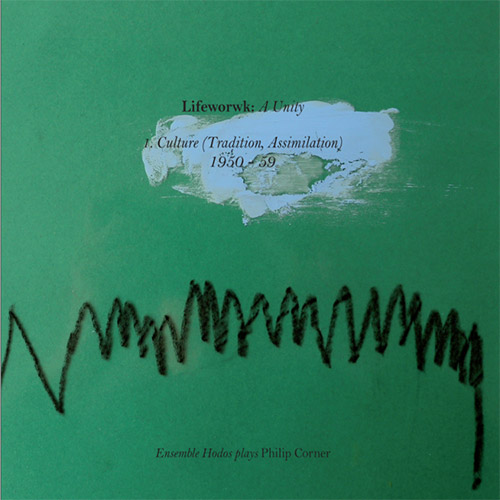


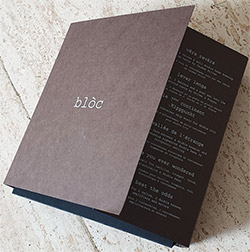

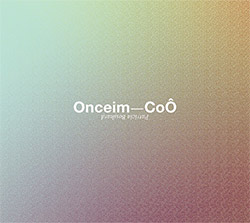
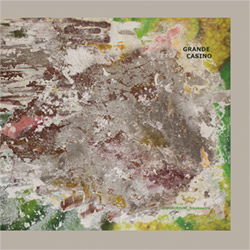
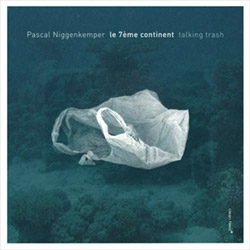

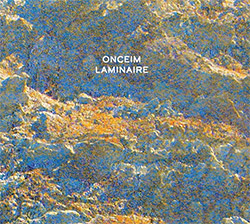
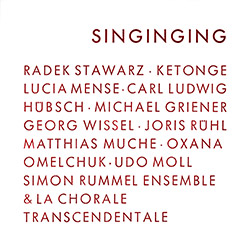
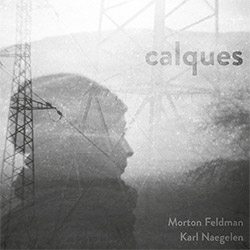
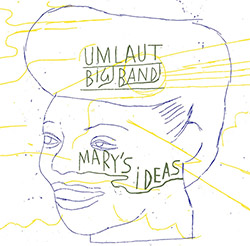



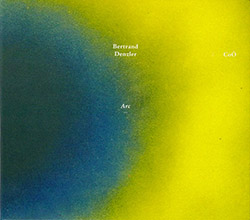
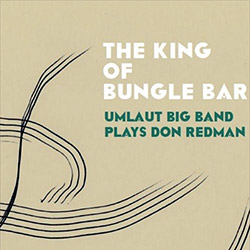

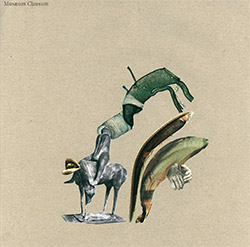



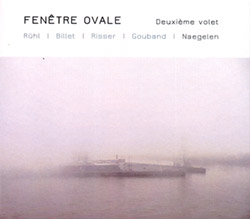


![Guy, Barry / Ken Vandermark: Occasional Poems [2 CDs]](https://www.teuthida.com/productImages/misc4/34849.jpg)
![Novoa / Carter / Mela Trio: Vol.1 [VINYL]](https://www.teuthida.com/productImages/misc4/35236.jpg)


![Elephant9 : Mythical River [VINYL]](https://www.teuthida.com/productImages/misc4/34624.jpg)
![Evans, Peter (Evans / Eldh / Black): Extra [VINYL]](https://www.teuthida.com/productImages/misc4/35279.jpg)

![McPhee, Joe: Straight Up, Without Wings [BOOK]](https://www.teuthida.com/productImages/misc4/35454.jpg)
![Jeck, Philip: rpm [2 CDs]](https://www.teuthida.com/productImages/misc4/35455.jpg)













![Barker / Parker / Irabagon: Bakunawa [VINYL]](https://www.teuthida.com/productImages/misc4/35533.jpg)
![Blaser, Samuel / Marc Ducret / Peter Bruun: Dark Was The Night, Cold Was The Ground [VINYL 10-inch]](https://www.teuthida.com/productImages/misc4/35492.jpg)








![Warren, Kenny (Warren / Hoffman / Ellman): Sweet World [VINYL]](https://www.teuthida.com/productImages/misc4/35451.jpg)




![Blake, Ran / Dave Knife Fabris: Live Amsterdam 2006, First Visit [CD + POSTCARDS]](https://www.teuthida.com/productImages/misc4/35275.jpg)













![DNS: Taking Big Bites Of The Khandas Three Cafes Deep [2 CDs]](https://www.teuthida.com/productImages/misc4/35334.jpg)




![Cleaver, Gerald: The Process [VINYL]](https://www.teuthida.com/productImages/misc4/34966.jpg)




![Alva Noto: HYbr:ID II [VINYL 2 LPs]](https://www.teuthida.com/productImages/misc4/35201.jpg)

![Baron, Derek / Luke Martin: Distinct and Concealed [CASSETTE + DOWNLOAD]](https://www.teuthida.com/productImages/misc4/35079.jpg)

![Lyle, Erica Dawn : Colonial Motels [CASSETTE + DOWNLOAD]](https://www.teuthida.com/productImages/misc4/35080.jpg)









![Sanna, Claudio: Compositori Sardi Contemporanei II [2 CDs]](https://www.teuthida.com/productImages/misc4/35317.jpg)







![Zurria, Manuel: Fame di Vento [3 CDs]](https://www.teuthida.com/productImages/misc4/35167.jpg)

![Granberg, Magnus / Nattens Inbrott / Skogen: Holde Traume, Kehret Wieder! [2 CDs]](https://www.teuthida.com/productImages/misc4/35038.jpg)
![Frey, Jurg: Outermost Melodie [2 CDs]](https://www.teuthida.com/productImages/misc4/35039.jpg)

![Pavone, Jessica: Reverse Bloom [VINYL]](https://www.teuthida.com/productImages/misc4/34895.jpg)




![Modney (Modney / Wooley / Gentile / Roberts / Pluta / Symthe / ...): Ascending Primes [2 CDs]](https://www.teuthida.com/productImages/misc4/34852.jpg)









![Elephant9 with Terje Rypdal: Catching Fire [VINYL 2 LPs]](https://www.teuthida.com/productImages/misc4/35355.jpg)
![Deerlady (Obomsawin, Mali / Magdalena Abrego): Greatest Hits [VINYL]](https://www.teuthida.com/productImages/misc4/34876.jpg)




![Haino, Keiji: Black Blues [2 CDs]](https://www.teuthida.com/productImages/misc4/35109.jpg)



![Surplus 1980: Illusion of Consistency [CD]](https://www.teuthida.com/productImages/misc4/35069.jpg)
![Staiano, Moe: Away Towards the Light [VINYL + DOWNLOAD]](https://www.teuthida.com/productImages/misc4/35037.jpg)



![Caveira (Gomes / Sousa / Abras / Ferrandini): Ficar Vivo [VINYL]](https://www.teuthida.com/productImages/misc4/34643.jpg)
![Gregg, J. J. / David Van Auken: Lunar Prairie [CD w/ DOWNLOAD]](https://www.teuthida.com/productImages/misc4/34611.jpg)

![Coultrain: Mundus [VINYL]](https://www.teuthida.com/productImages/misc4/32439.jpg)
![Mattin: Songbook #6 [VINYL]](https://www.teuthida.com/productImages/misc4/27317.jpg)
![Punkappella: Wake Up [7-inch VINYL]](https://www.teuthida.com/productImages/misc4/17519.jpg)
![Residents, The: WARNING: UNiNC.: Live And Experimental Recordings 1971-1972 [VINYL 2 LPs]](https://www.teuthida.com/productImages/misc4/31521.jpg)
![Coultrain: Phantasmagoria [VINYL]](https://www.teuthida.com/productImages/misc4/30142.jpg)
![Lennon, Sean Ono: Asterisms [VINYL]](https://www.teuthida.com/productImages/misc4/34517.jpg)

![Coley, Byron: Dating Tips for Touring Bands [VINYL]](https://www.teuthida.com/productImages/misc4/17906.jpg)

![Lost Kisses: My Life is Sad & Funny [DVD]](https://www.teuthida.com/productImages/misc4/lostKissesDVD.jpg)